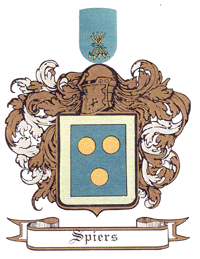
TOBACCO
In 1583 Walter Raleigh, who had sailed from England, arrived at the
American continent, at what is now Roanoke Island, he named the country
he found Virginia, after his virgin Queen, Elizabeth. James River and
James Town which were later settled, were named after King James. Other
British voyagers continued to arrive in the succeeding years, at Cape
Hatteras, Chesapeake, Cape Cod and other places. The English Crown was
keen to find gold in Virginia as had the Spanish in South America, but
explorers failed to find any and the English Crown lost interest. In
1607 the British exported silk worms and mulberry trees to Virginia and
tried silk production, but it required labour which was in short supply
and by the end of the 17th century its production had failed. By 1617
tobacco had been planted in Virginia and that succeeded because it did
not require as much labour as silk. It began to be exported in quantity
to England and it was taxed. It was not till later that the Scots
started to import it into the Clyde in Scotland, in order to beat
English taxes and blockades associated with the American War of
Independance. Because capital and organisation was needed, ties between
traders were close, there were often family ties. Between 1740 and 1749
only 19 Glasgow merchants were involved in the American trade. Between
1740 and 1790 about 163 merchant burgesses in Glasgow were involved in
tobacco importation.
John Spiers, an Edinburgh merchant, who married Isabel Tweedie on 20
October 1708, had three sons, John, Alexander and James and six
daughters. Alexander Speirs, born 1714, had sailed from Glasgow to
Virginia where he owned a tobacco plantation. He married Sarah Carey in
Jamestown on 15 November 1746. They had no children. He exported tobacco
from Virginia to Glasgow. The largest single tobacco firm before the
American War, in which Alexander Speirs had an interest, was Speirs,
Bowman and Co. of Glasgow. In 1744 its total capital was £16,200 and in
1773 it had swollen to £152,280. He also became the chief partner of the
Glasgow Arms Bank founded in 1752. During the years 1767-75 Alexander
Speirs & Co's ship, the Bowman, recorded 16 round voyages between
Scotland and Virginia. Other Glasgow merchants traded in tobacco and the
richest, amongst them Alexander Speirs, William Cunninghame and John
Glassford, collectively became known as the Tobacco Lords. By 1775, the
three of them owned over half of the Glasgow tobacco trade, and by 1777
the syndicates controlled by them dealt in eighty per cent of the
tobacco export trade. The leading Glasgow tobacco merchants were
intimately linked by marriage. Alex returned from Virginia to Glasgow
where he had a large house in Virginia Street, Glasgow, built by
Buchanan. He secondly married Mary Buchanan of Auchentorlie, daughter of
Archibald, on 3 March 1755, they had four sons John,1757 - 1773,
Archibald, 1758 - 1832, Alexander, 1759 - 1772, and Peter, 1761 - 1828
and six daughters. He had a warehouse in Dublin, Ireland for textiles
and exported to Holland. In 1794 Alexander's son, Archibald, born 10 Feb
1758, married the Hon. Margaret Dundas, daughter of Thomas, Lord Dundas.
They were involved in opening up canals in Scotland and England.
Archibald had a mansion house at Elderslie, Renfrew, another at Largs,
Ayrshire, estate in Sterlingshire and made many other land purchases.
The Dundas family have played a prominent role in Scottish history. One
of Alexander Speirs' sons, Peter, born 1761, married Martha Harriett
daughter of Robert Cunningham Graham of Gartmore, Perth, and owned
Culcreuch. This passed on to his son Robert Cunningham Graham Speirs who
married Catherine Ann Grant in 1832. Their daughter was Ann Oliphant
Speirs who married Sir George Hume in 1858 who assumed the Speirs
surname. Archibald's son, Alexander, born 1803, was Lord Lieutenant of
Renfrew and a Member of Parliament for Richmond, Yorkshire. In 1836 he
married Eliza Stewart Haggart daughter of Thomas Campbell Haggart. Their
son, Archibald Alexander, married Lady Anne Pleydell Bouverie in 1867,
she was the eldest daughter of Jacob, 6th Earl of Radnor.
Other Glaswegians traded in tobacco and one was Thomas Spiers, see the
article on Spiers and Pond. There is no known connection between Thomas
Spiers and Alexander Speirs. The population of Glasgow in 1740 was
17,034 and in 1780 it was 42,832; in 1999 it was about 726,000. The
Spiers and Speirs surnames are not uncommon in the area so it is
guesswork as to whether the families knew each other, but considering
the relatively small population of Glasgow in the 1700's and the few
traders dealing in tobacco, then the tobacco trade may have been, at
least, a business link.
For further information see, The Tobacco Lords, by T.M.Devine, publ.
1975, reprinted 1990, Edinburgh.

